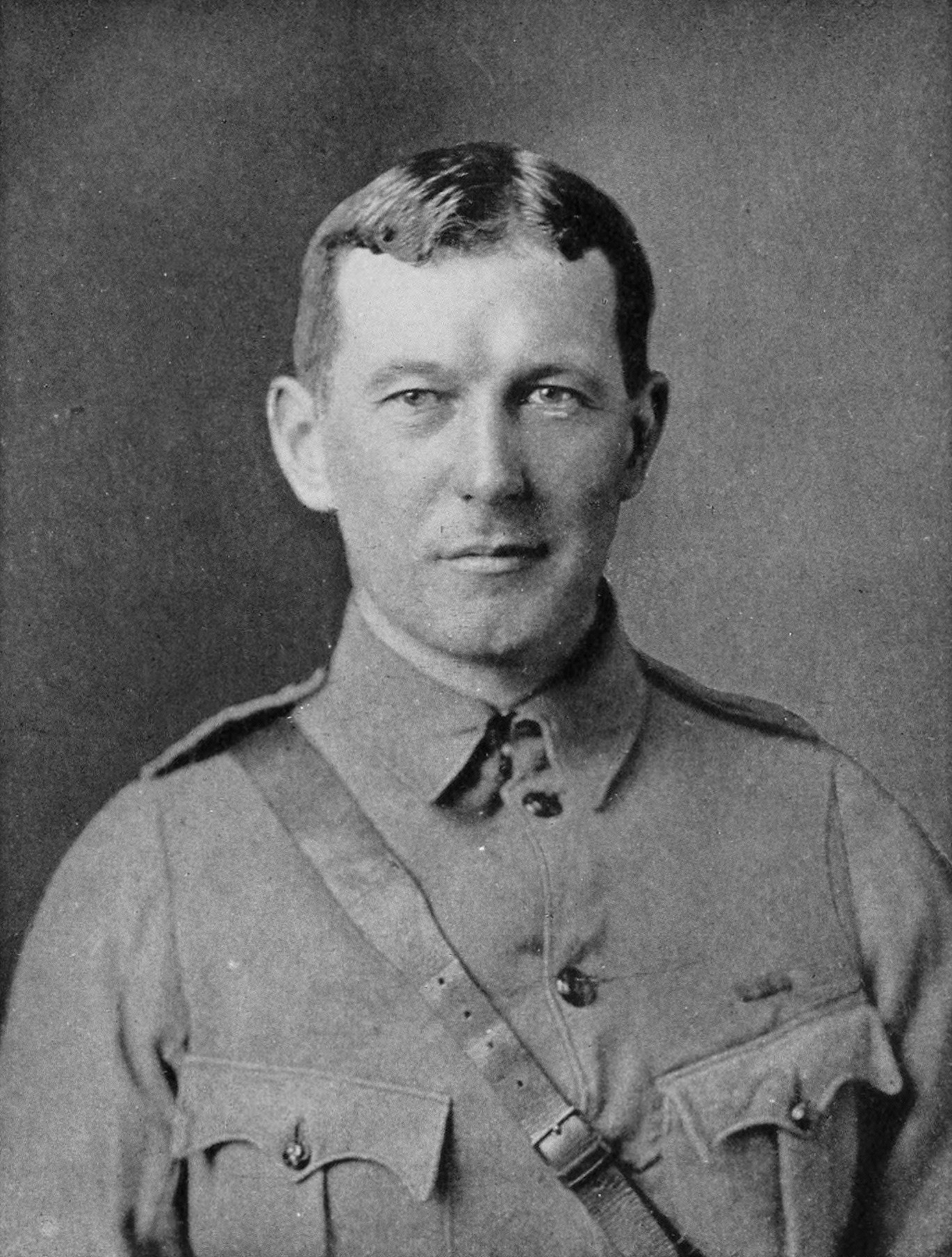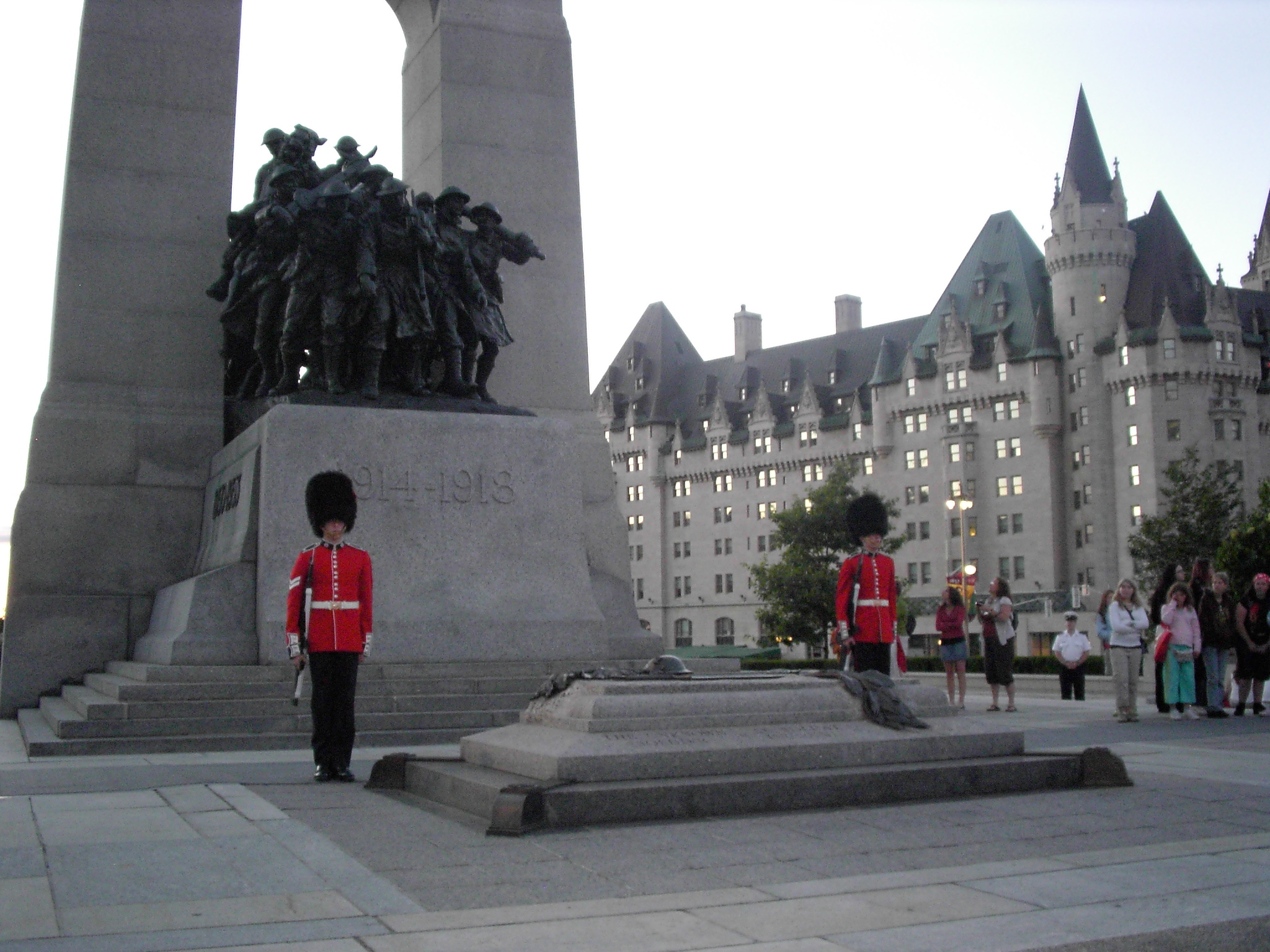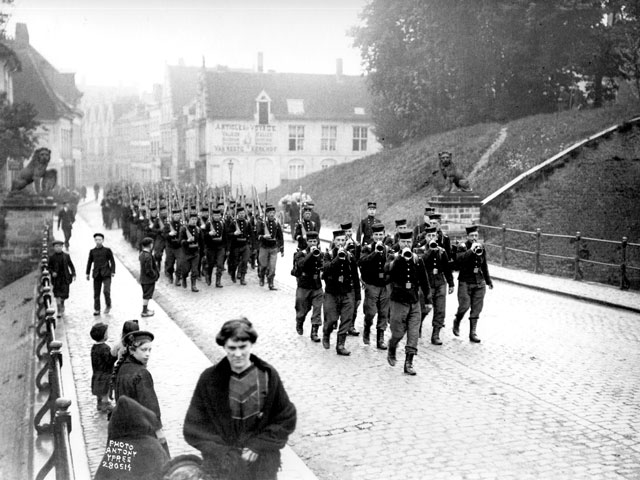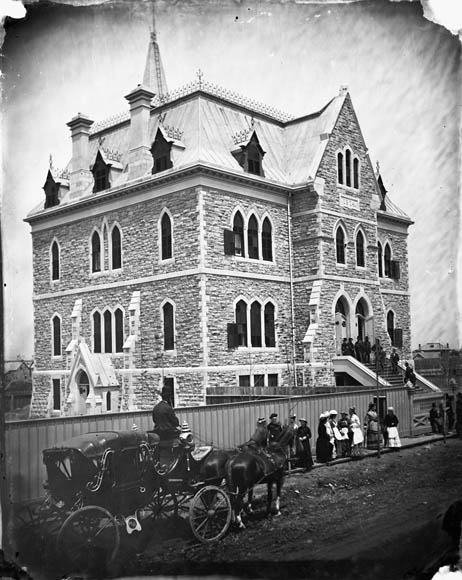|
Alexis Helmer
Alexis Hannum Helmer (29 June 1892 – 2 May 1915) was killed in battle during the Great War while serving with the 2nd Battery, 1st Brigade, Canadian Field Artillery. He is known as being part of the inspiration for ''In Flanders Fields'' through his friendship with John McCrae. Life He was born 29 June 1892, Hull, Quebec, Canada, the son of Brigadier General R. A. Helmer and Elizabeth I. Helmer, of Gilmour Street, Ottawa, Ontario, Canada. He attended Ottawa Collegiate Institute, a high school in Ottawa, Ontario. He was later an engineer. Great War and death He enlisted August 27, 1914 in the Canadian Field Artillery. He was killed in the Second Battle of Ypres on 2 May 1915. From the Canadian Virtual War Memorial: :"The following circumstances of his death have been compiled from letters received by Lieut Owen Carsley Frederic Hague's father, Frederic Hague from officers in the area at the time. Early on Sunday morning, May 2, 1915 Lieutenants' Hague and Helmer left their p ... [...More Info...] [...Related Items...] OR: [Wikipedia] [Google] [Baidu] |
Hull, Quebec
Hull is the central business district and oldest neighbourhood of the city of Gatineau, Quebec, Canada. It is located on the west bank of the Gatineau River and the north shore of the Ottawa River, directly opposite Ottawa. As part of the Canadian National Capital Region, it contains offices for over 20,000 civil servants. It is named after Kingston upon Hull in England. History Early history Hull is a former municipality in the Province of Quebec and the location of the oldest non-native settlement in the National Capital Region. It was founded on the north shore of the Ottawa River in 1800 by Philemon Wright at the portage around the Chaudière Falls just upstream (or west) from where the Gatineau and Rideau Rivers flow into the Ottawa. Wright brought his family, five other families and twenty-five labourers and a plan to establish an agriculturally based community to what was a mosquito-infested wilderness. But soon after, Wright and his family took advantage of the lar ... [...More Info...] [...Related Items...] OR: [Wikipedia] [Google] [Baidu] |
Site John McCrae
Site John McCrae ( nl, Kanaaldijk - site John McCrae) is a World War I memorial site near Ypres, Belgium. It is named after the Canadian physician Lieutenant Colonel John McCrae, MD (1872–1918), author of the famous poem "In Flanders Fields", which he composed while serving at this site in 1915. Location Site John McCrae is located directly adjacent to the Ieperlee (Ypres Canal), about halfway in between the centre of Ypres and the centre of Boezinge, about 2.5 km from each. The memorial site is set in between Diksmuidseweg (N369) in the west and the Ieperlee in the east, and can - for the purpose of orientation - be roughly divided into four sections: The south-west of the site is now occupied by the Essex Farm CWGC Cemetery. The north-western quarter is privately used as farmland, while the north-east and south-east are partially wooded and dominated by the artificially constructed earthen ridge of the embankment, which runs parallel to the Ieperlee. In the centre of the ... [...More Info...] [...Related Items...] OR: [Wikipedia] [Google] [Baidu] |
Canadian Military Personnel Killed In World War I
Canadians (french: Canadiens) are people identified with the country of Canada. This connection may be residential, legal, historical or cultural. For most Canadians, many (or all) of these connections exist and are collectively the source of their being ''Canadian''. Canada is a multilingual and multicultural society home to people of groups of many different ethnic, religious, and national origins, with the majority of the population made up of Old World immigrants and their descendants. Following the initial period of French and then the much larger British colonization, different waves (or peaks) of immigration and settlement of non-indigenous peoples took place over the course of nearly two centuries and continue today. Elements of Indigenous, French, British, and more recent immigrant customs, languages, and religions have combined to form the culture of Canada, and thus a Canadian identity. Canada has also been strongly influenced by its linguistic, geographic, and e ... [...More Info...] [...Related Items...] OR: [Wikipedia] [Google] [Baidu] |
People From Gatineau
A person ( : people) is a being that has certain capacities or attributes such as reason, morality, consciousness or self-consciousness, and being a part of a culturally established form of social relations such as kinship, ownership of property, or legal responsibility. The defining features of personhood and, consequently, what makes a person count as a person, differ widely among cultures and contexts. In addition to the question of personhood, of what makes a being count as a person to begin with, there are further questions about personal identity and self: both about what makes any particular person that particular person instead of another, and about what makes a person at one time the same person as they were or will be at another time despite any intervening changes. The plural form " people" is often used to refer to an entire nation or ethnic group (as in "a people"), and this was the original meaning of the word; it subsequently acquired its use as a plural ... [...More Info...] [...Related Items...] OR: [Wikipedia] [Google] [Baidu] |
Canadian Expeditionary Force Officers
Canadians (french: Canadiens) are people identified with the country of Canada. This connection may be residential, legal, historical or cultural. For most Canadians, many (or all) of these connections exist and are collectively the source of their being ''Canadian''. Canada is a multilingual and multicultural society home to people of groups of many different ethnic, religious, and national origins, with the majority of the population made up of Old World immigrants and their descendants. Following the initial period of French and then the much larger British colonization, different waves (or peaks) of immigration and settlement of non-indigenous peoples took place over the course of nearly two centuries and continue today. Elements of Indigenous, French, British, and more recent immigrant customs, languages, and religions have combined to form the culture of Canada, and thus a Canadian identity. Canada has also been strongly influenced by its linguistic, geographic, and ec ... [...More Info...] [...Related Items...] OR: [Wikipedia] [Google] [Baidu] |
Military History Of Canada
The military history of Canada comprises hundreds of years of armed actions in the territory encompassing modern Canada, and interventions by the Canadian Forces, Canadian military in conflicts and peacekeeping worldwide. For thousands of years, the area that would become Canada was the site of sporadic intertribal conflicts among Aboriginal peoples in Canada, Aboriginal peoples. Beginning in the 17th and 18th centuries, Canada was the site of French and Indian Wars, four colonial wars and two additional wars in Nova Scotia and Acadia between New France and New England; the conflicts spanned almost seventy years, as each allied with various First Nation groups. In 1763, after the final colonial war—the Seven Years' War—the British emerged victorious and the French civilians, whom the British hoped to assimilate, were declared "British Subjects". After the passing of the Quebec Act in 1774, giving the Canadians, Canadians their first charter of rights under the new regime, the B ... [...More Info...] [...Related Items...] OR: [Wikipedia] [Google] [Baidu] |
1915 Deaths
Events Below, the events of World War I have the "WWI" prefix. January *January – British physicist Sir Joseph Larmor publishes his observations on "The Influence of Local Atmospheric Cooling on Astronomical Refraction". *January 1 ** WWI: British Royal Navy battleship HMS ''Formidable'' is sunk off Lyme Regis, Dorset, England, by an Imperial German Navy U-boat, with the loss of 547 crew. ** Battle of Broken Hill: A train ambush near Broken Hill, New South Wales, Australia, is carried out by two men (claiming to be in support of the Ottoman Empire) who are killed, together with 4 civilians. * January 5 – Joseph E. Carberry sets an altitude record of , carrying Capt. Benjamin Delahauf Foulois as a passenger, in a fixed-wing aircraft. * January 12 ** The United States House of Representatives rejects a proposal to give women the right to vote. ** '' A Fool There Was'' premières in the United States, starring Theda Bara as a ''femme fatale''; she quickly becomes one o ... [...More Info...] [...Related Items...] OR: [Wikipedia] [Google] [Baidu] |
1892 Births
Year 189 ( CLXXXIX) was a common year starting on Wednesday (link will display the full calendar) of the Julian calendar. At the time, it was known as the Year of the Consulship of Silanus and Silanus (or, less frequently, year 942 ''Ab urbe condita''). The denomination 189 for this year has been used since the early medieval period, when the Anno Domini calendar era became the prevalent method in Europe for naming years. Events By place Roman Empire * Plague (possibly smallpox) kills as many as 2,000 people per day in Rome. Farmers are unable to harvest their crops, and food shortages bring riots in the city. China * Liu Bian succeeds Emperor Ling, as Chinese emperor of the Han Dynasty. * Dong Zhuo has Liu Bian deposed, and installs Emperor Xian as emperor. * Two thousand eunuchs in the palace are slaughtered in a violent purge in Luoyang, the capital of Han. By topic Arts and sciences * Galen publishes his ''"Treatise on the various temperaments"'' (aka ' ... [...More Info...] [...Related Items...] OR: [Wikipedia] [Google] [Baidu] |
Menin Gate
The Menin Gate ( nl, Menenpoort), officially the Menin Gate Memorial to the Missing, is a war memorial in Ypres, Belgium, dedicated to the British and Commonwealth soldiers who were killed in the Ypres Salient of World War I and whose graves are unknown. The memorial is located at the eastern exit of the town and marks the starting point for one of the main roads out of the town that led Allied soldiers to the front line. “Menin” is the traditional name of the gate in this location of Ypres' city walls because it leads to the town of Menen. Designed by Sir Reginald Blomfield and built by the Imperial War Graves Commission (since renamed the Commonwealth War Graves Commission), the Menin Gate Memorial was unveiled on 24 July 1927. In early 2023, Menin Gate will close for extensive restoration works in time for the memorials centenary in 2027. Background In medieval times, the original narrow gateway on the eastern wall of Ypres was called the Hangoartpoort, "poort" being ... [...More Info...] [...Related Items...] OR: [Wikipedia] [Google] [Baidu] |
Lisgar Collegiate Institute
Lisgar Collegiate Institute is an Ottawa-Carleton District School Board secondary school in Ottawa, Ontario, Canada. The school is located in downtown Ottawa by the Rideau Canal. History In 1843, a grammar school with 40 paying students was opened in the Sandy Hill area of Ottawa in a house at the corner of Waller Street and Daly Avenue. In 1859, the school became one of the first in Ontario to admit girls. The school changed locations several times in the first few years, and was renamed first Bytown Grammar School and later Ottawa Grammar School. In 1871 the school was raised to a high school and in 1873 to a collegiate institute, becoming Ottawa Collegiate Institute. The school found a permanent home in 1873 when a lot at what was then the southern edge of the city was purchased. The school board acquired the land on Biddy Street for $3,200 and paid a squatter $100 to give up any claims on the land. Biddy Street was renamed Lisgar Street in 1880 after Lord Lisgar, an Iri ... [...More Info...] [...Related Items...] OR: [Wikipedia] [Google] [Baidu] |
The Spectator
''The Spectator'' is a weekly British magazine on politics, culture, and current affairs. It was first published in July 1828, making it the oldest surviving weekly magazine in the world. It is owned by Frederick Barclay, who also owns ''The Daily Telegraph'' newspaper, via Press Holdings. Its principal subject areas are politics and culture. It is politically conservative. Alongside columns and features on current affairs, the magazine also contains arts pages on books, music, opera, film and TV reviews. Editorship of ''The Spectator'' has often been a step on the ladder to high office in the Conservative Party in the United Kingdom. Past editors include Boris Johnson (1999–2005) and other former cabinet members Ian Gilmour (1954–1959), Iain Macleod (1963–1965), and Nigel Lawson (1966–1970). Since 2009, the magazine's editor has been journalist Fraser Nelson. ''The Spectator Australia'' offers 12 pages on Australian politics and affairs as well as the full UK maga ... [...More Info...] [...Related Items...] OR: [Wikipedia] [Google] [Baidu] |
Edward Whipple Bancroft Morrison
Sir Edward Whipple Bancroft Morrison, (6 July 1867 – 28 May 1925) was a Canadian journalist and Major General in the Canadian Army during World War I. Biography Born in London, Ontario, he worked as a journalist for the '' Hamilton Spectator'' and later as editor-in-chief of the ''Ottawa Citizen''. He served with the Royal Canadian Artillery in South Africa during the Boer War, where he received the Distinguished Service Order. Later, in World War I he served with the Canadian Expeditionary Force and was promoted to major-general in 1918. Morrison had command of all artillery at the battle of Vimy Ridge. After the war, he continued to serve with the Canadian Army until he retired in 1924. He was made a Knight Commander of the Order of St Michael and St George The Most Distinguished Order of Saint Michael and Saint George is a British order of chivalry founded on 28 April 1818 by George IV, George IV, Prince of Wales, while he was acting as prince regent fo ... [...More Info...] [...Related Items...] OR: [Wikipedia] [Google] [Baidu] |
.jpg)

_1938.jpg)





